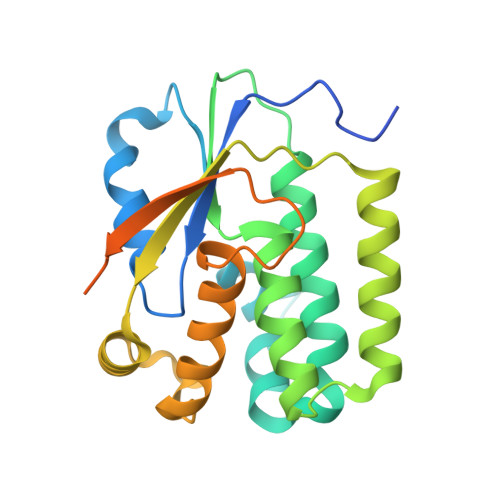Structural Studies of Nucleoside Analog and Feedback Inhibitor Binding to Drosophila Melanogaster Multisubstrate Deoxyribonucleoside Kinase.
Mikkelsen, N.E., Munch-Petersen, B., Eklund, H.(2008) FEBS J 275: 2151
- PubMed: 18384378
- DOI: https://doi.org/10.1111/j.1742-4658.2008.06369.x
- Primary Citation of Related Structures:
2JJ8, 2VP0, 2VP2, 2VP4, 2VP5, 2VP6, 2VP9, 2VQS - PubMed Abstract:
The Drosophila melanogaster multisubstrate deoxyribonucleoside kinase (dNK; EC 2.7.1.145) has a high turnover rate and a wide substrate range that makes it a very good candidate for gene therapy. This concept is based on introducing a suicide gene into malignant cells in order to activate a prodrug that eventually may kill the cell. To be able to optimize the function of dNK, it is vital to have structural information of dNK complexes. In this study we present crystal structures of dNK complexed with four different nucleoside analogs (floxuridine, brivudine, zidovudine and zalcitabine) and relate them to the binding of substrate and feedback inhibitors. dCTP and dGTP bind with the base in the substrate site, similarly to the binding of the feedback inhibitor dTTP. All nucleoside analogs investigated bound in a manner similar to that of the pyrimidine substrates, with many interactions in common. In contrast, the base of dGTP adopted a syn-conformation to adapt to the available space of the active site.
Organizational Affiliation:
Department of Molecular Biology, Swedish University of Agricultural Sciences, Biomedical Center, Uppsala, Sweden.
















